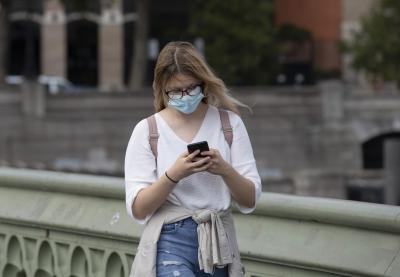London, Dec 12 (IANSO Potential treatments for Covid -19 have been identified after the discovery of five genes associated with the most severe form of the disease, say researches.
According to a study, published in the journal ‘Nature’, genetic evidence is second only to clinical trials as a way to tell which treatments will be effective in a disease.
The existing drugs that target the actions of the genes reveal which drugs should be repurposed to treat Covid-19 in clinical trials, the researchers said.
Genes involved in two molecular processes – antiviral immunity and lung inflammation – were pinpointed. The breakthrough will help doctors understand how Covid-19 damages the lungs at a molecular level.
Researchers from the University of Edinburgh made the discovery by studying the DNA of 2,700 patients in 208 intensive care units (ICUs) in the UK.
The research team from the GenOMICC consortium – a global collaboration to study genetics in critical illness – compared the genetic information of Covid-19 patients in ICU with samples provided by healthy volunteers from other studies, such as UK Biobank, Generation Scotland and 100,000 Genomes.
The team found key differences in five genes of the ICU patients compared with samples provided by healthy volunteers.
The genes – IFNAR2, TYK2, OAS1, DPP9 and CCR2 – partially explain why some people become desperately sick with Covid-19, while others are not affected.
Having highlighted the genes, the team were then able to predict the effect of drug treatments on patients, because some genetic variants respond in a similar way to particular drugs.
For example, they showed that a reduction in the activity of the TYK2 gene protects against Covid-19. A class of anti-inflammatory drugs called JAK inhibitors, which includes the drug baricitinib, produces this effect.
They also discovered that a boost in the activity of the gene INFAR2 is also likely to create protection, because it is likely to mimic the effect of treatment with interferon – proteins released by cells of the immune system to defend against viruses.
However, experts caution that to be effective, patients might need the treatment early in the disease. Also, the clinical trials should focus on drugs that target these specific antiviral and anti-inflammatory pathways.
“Our genetic results provide a roadmap through the complexity of immune signals, showing the route to key drug targets,” said study author Kenneth Baillie from the University of Edinburgh.
“Our results immediately highlight which drugs should be at the top of the list for clinical testing,” Baillie added.
Disclaimer: This story is auto-generated from IANS service.

